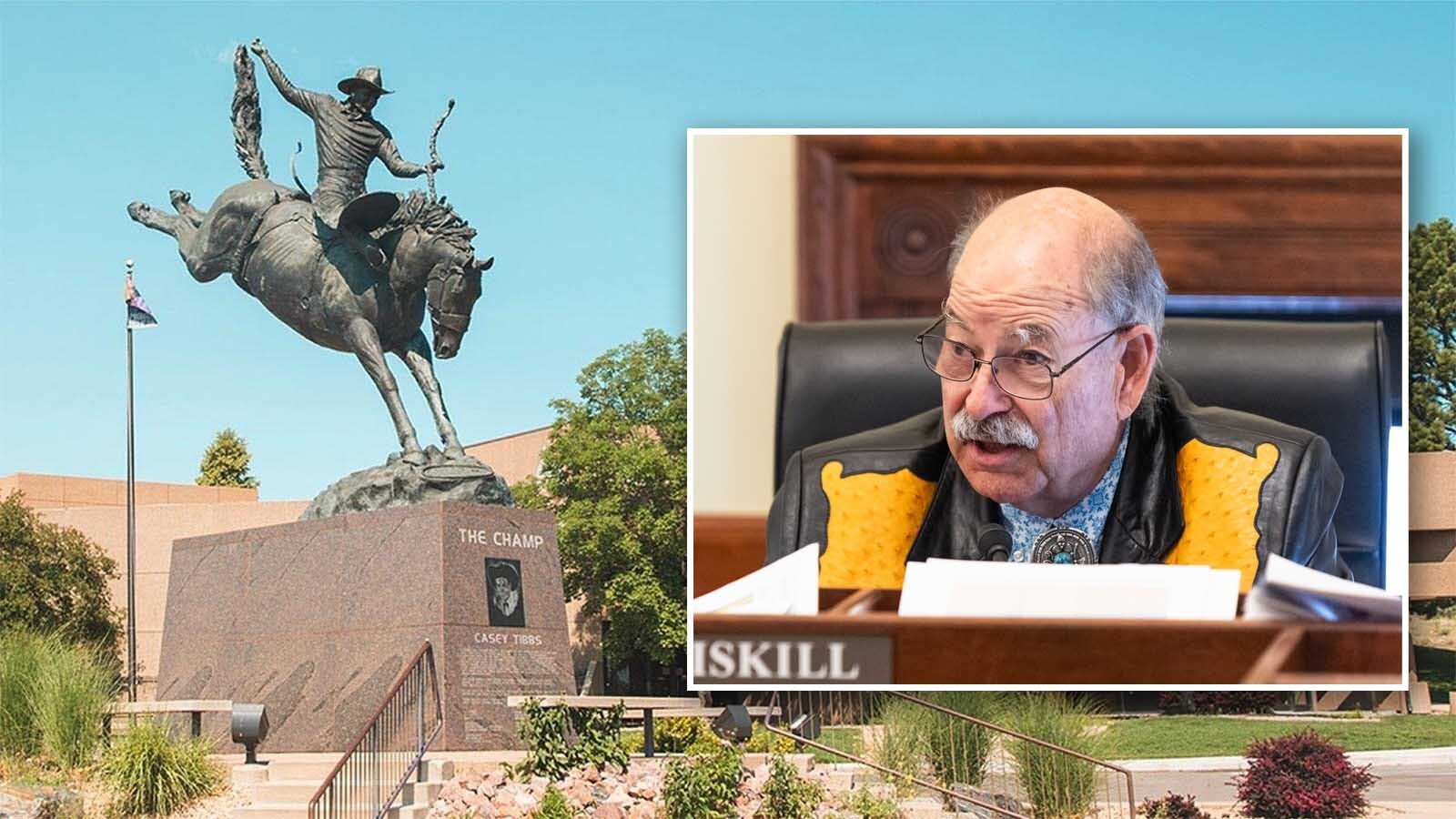Through decades of numerous, unpredictable illnesses, pain has become a constant for Cody resident Dawn Scott.
But with the opioid epidemic raging in Wyoming and throughout the U.S., obtaining painkillers has become as unpredictable as epithelioid hemangioendothelioma, the rare cancer she fought in the late 1990s.
The guarantee of a doctor prescribing opioids can be as uncertain as her thoracic outlet syndrome, the illness that resulted in 21 surgeries between 2014 and 2016, which left her with most of her collarbone removed and muscles that had been attached to the clavicle reattached to other parts of her body.
“Once I tell them the amount of opioids I’m going to need to get relief — which is significant after 21 years of surgeries — I’m almost instantly labeled a seeker,” she said. “Unless it’s an ER doctor who knows me and knows my history. Newer doctors or loaner doctors don’t offer any form of pain control.”
As state leaders try to control the flow of opioids in Wyoming, complications have emerged. Chronic pain patients have had trouble getting the medicine they need to be comfortable and live productive lives. Physicians and other prescribers – already under watch by private insurers and government health care programs – have new laws to consider in their practice.
But state leaders, concerned about addiction and its effects on families and communities in Wyoming, felt it necessary to change the law and make it harder to dispense and obtain opioids.
Last month, the Cowboy State Daily reported more than 100 million painkillers were shipped to Wyoming pharmacies between 2006 and 2012. The state, local governments and Indian tribes have sued drug makers and distributors, saying they aggressively marketed the medicines and downplayed their addictive tendencies.
In February, the Wyoming Legislature passed Senate File 46 and Senate File 47 – its own response to the opioid epidemic.
S.F. 46 prohibits prescribing and dispensing more than a 7-day supply of opioids in a 7-day period to an acute pain patient, with the Wyoming State Board of Pharmacy to establish “reasonable exceptions” for chronic pain, cancer treatment, palliative care and other clinical exceptions. The pharmacy board is working on rules.
The 7-day law is similar to restrictions in about 15 other states.
S.F. 47 requires licensed health care professionals to take continuing education courses in the responsible prescribing of controlled substances, which includes opioids.
The law also requires prescribers to upload controlled substance prescriptions electronically to the Wyoming Online Prescription Database by Jan. 1, 2021, so that doctors, pharmacists and other professionals can review what drugs a patient is on — and prevent abuse or adverse side effects.
The federal government has touted state-level prescription drug monitoring programs as a way to spot and close down “pill mills,” and reduce addiction and overdose deaths. Wyoming physicians — who feel they don’t have a problem with over-prescribing, save for a few extreme examples – say the new state laws are heaping on more regulations on top of various insurance and government health care programs, said Sheila Bush, the Wyoming Medical Society’s executive director.
For instance, Medicare encourages physicians to check the prescription drug monitoring program when writing opioid scripts. One private insurer may prohibit opioids for patients under a certain age, another may limit patients to three days of opioids. There are federal laws, and now state laws, she said.
“Separate from all of this, you still have good clinical knowledge – the ability for a physician to look at a patient and know the history and say, ‘This is the best care for you today,’” Bush said. “They’re inundated. There’s no consistency.”
The Medical Society was supportive of the Wyoming legislation because it knew the public had asked for changes in the law. The organization felt that having a seat at the table and providing doctors’ expertise could make the measures better, she said.
But Wyoming patients with serious medical issues may suffer as a result of these policies.
Scott, the Cody chronic pain patient, had a miscarriage in a 2016. She asked the physician for painkillers for her cramping. She received just one pill – two milligrams of the opioid Dilaudid.
“My normal dosage to give me maximum relief is between 12-16 milligrams of Dilaudid,” she said, describing the following days as agonizing.
Scott has since found a pain specialist in Billings, Montana, who has reduced her trips to the emergency room when migraines, cluster headaches and other pain flares up.
Scott, who as an attorney has represented people with chronic pain, believes opioids aren’t addictive for everyone. Some patients use them responsibly to relieve pain, she said. Scott said she’s gone through periods in which she didn’t have to take any painkillers.
“It’s sad, and I’ve watched addiction first-hand, not with opioids – but my dad died of alcoholism,” she said. “I understand the power of addiction. I understand there needs to be control. But there also needs to be a case-by-case basis, not just a blanket decision that, ‘I’m not going to ever offer over 2 milligrams of Dilaudid.’ They feel like their discretion is being scrutinized because of regulations. Some doctors want to help people and they’re limited.”





